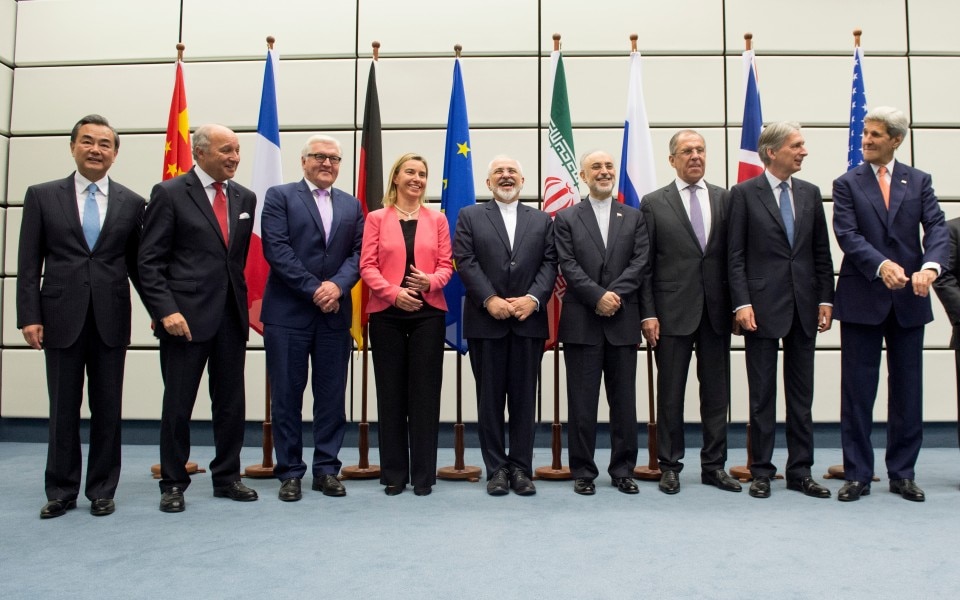Federica Mogherini is the high representative of the European Union for Foreign Affairs and Security Policy and Vice-President of the European Commission.
President Donald Trump’s decision not to certify the Iran nuclear deal has consequences only in the U.S. — for the moment. But American lawmakers are now in a crucial position: their next moves will have a significant impact on the security of the U.S. and its allies in Europe, the Middle East and the rest of the world.
One thing is clear: renegotiation is not an option. I say this out of realism and experience. It took us 12 years to agree on extremely dense and complex technical details in a process that required all outstanding issues to be tackled in parallel. Unilaterally reopening discussions on this or that paragraph is simply impossible.
This is a matter of principles and credibility. The Iran deal is endorsed by a resolution of the United Nations Security Council, and we — both in Europe and in America — have always believed in the universal respect of international norms as a fundamental pillar of the international system.
With tensions running high around North Korea’s nuclear program, the world cannot afford another nuclear crisis. The nuclear agreement with Iran is working: it has ensured that Iran’s nuclear program is and will remain exclusively peaceful. Everyone who cares about our common security — Europe, the U.S., and friends and partners in the Middle East — should work to preserve the nuclear deal with Iran.
The deal is not based on trust. It is based on the most intrusive monitoring regime ever set up in history. The United Nations nuclear watchdog, the International Atomic Energy Agency, has performed hundreds of inspections of Iran’s nuclear facilities — including some unannounced. The IAEA, the only body with the mandate and the authority to verify compliance with the deal, has confirmed eight times that Iran is respecting all its nuclear-related commitments.
Let us not forget that, in respect to the terms of the agreement, Iran dismantled more than two-thirds of installed centrifuges and shipped out 98 percent of its enriched uranium. Its plutonium track has also been closed through the ongoing conversion of the heavy-water reactor in Arak. Thanks to the deal, Iran is also already implementing the IAEA’s Additional Protocol: this means that Iran is and will always continue to be subject to restrictions and a strict monitoring regime, including inspections.
The deal is made to stand the test of time, and it does not have a formal end date. It has phased implementation over 10, 15 and 25 years, but at its core is Iran’s commitment to renounce its ambition to develop nuclear weapons forever. These goals — the result of 12 years of difficult negotiations — would have been impossible to achieve through non-diplomatic means.
The deal works. This is both a technical assessment and a political reality. Ask any U.S. secretary of state from the past five administrations. All of them, Democrat and Republican, have publicly supported the agreement, which is making America and its partners more secure. The deal is preventing a nuclear arms race in the Middle East, which would have devastating security and economic consequences for all countries in the region and for the whole world. We share the concerns on the situation in the region and the Iranian ballistic missile program. But without the nuclear deal, our negotiating position would be much weaker — not stronger.
All issues need to be addressed and are being addressed in other formats and other forums. The European Union still has non-nuclear-related sanctions in place precisely for that purpose. But we need to be able to count on a strong and shared intent to honor all commitments related to the nuclear deal. Europe has made clear where it stands: we will preserve the deal, because it is delivering on its promises, and it is in our security interest to guarantee that that continues.
The Iran deal has been designed to address one thing only: the Iranian nuclear issue. That is the letter and the spirit of the deal. Nobody, neither Europe nor the U.S., will be in a better situation without it in place. Undermining the deal would only make the whole world a much more dangerous place.
Let’s join forces to preserve it, for the benefit of our citizens.
This was produced by The WorldPost, a partnership of the Berggruen Institute and The Washington Post.





